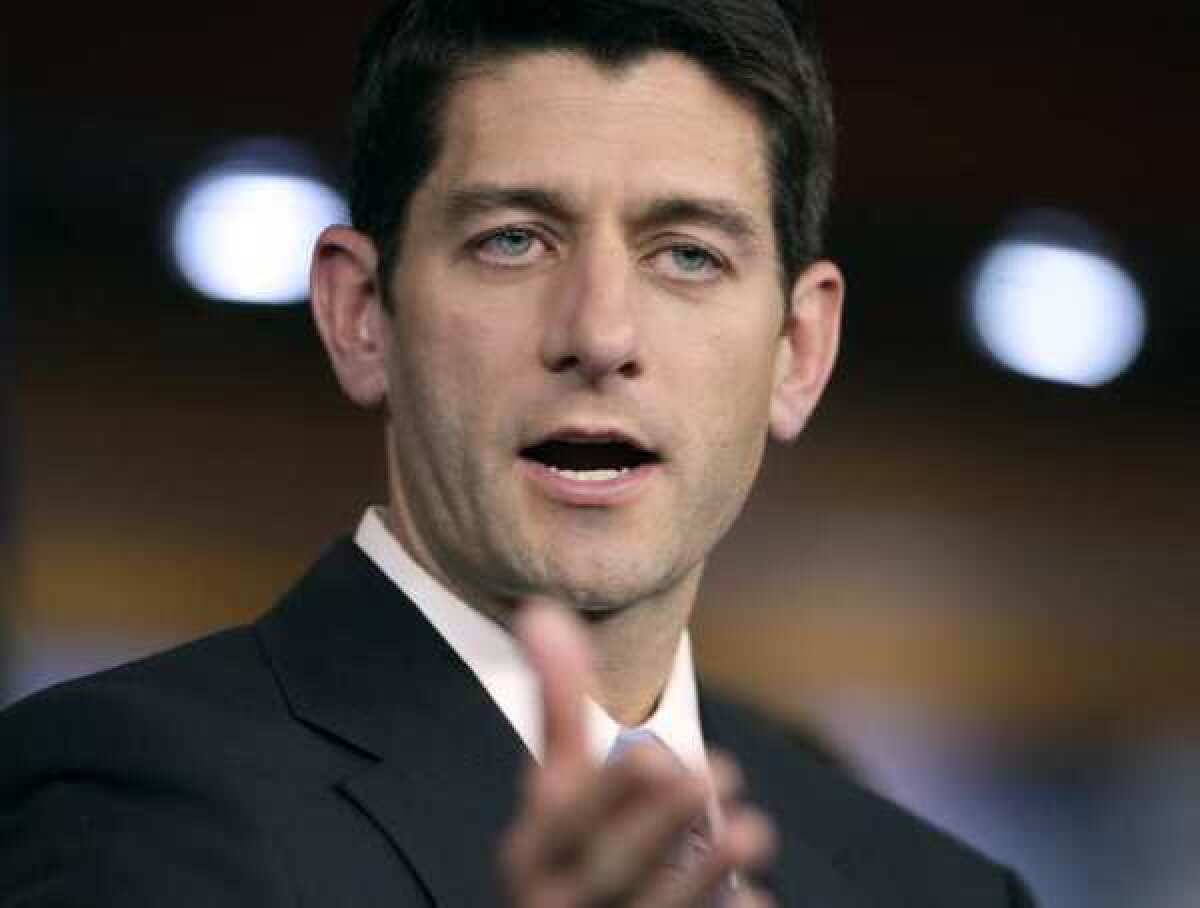McManus: Mixing Medicare and mudslinging

Don’t look now, but the 2012 election is turning into a national referendum on what to do about Medicare.
Democrats want to run on the issue — and to charge that Republican proposals to change Medicare into a voucher-based system would end the current guarantee of virtually unlimited healthcare for the elderly.
The chairman of their House campaign committee, Rep. Steve Israel (D-N.Y.), has told candidates to stress three issues: “Medicare, Medicare and Medicare.”
At least some Republicans — such as Rep. Paul D. Ryan (R-Wis.), author of a leading GOP Medicare proposal — say they welcome that fight. “Medicare is the issue,” Ryan told reporters last week.
Ryan believes Republicans can only lose if they play defense and allow Democrats to “scare seniors.” Instead, he argues that if the party spells out its ideas clearly, it can win a mandate to transform Medicare from a government-run plan to one run mostly by insurance companies.
That means voters may face a choice this fall not only over who should be president but also over how Medicare, the biggest driver of the federal deficit, should cut its costs: through government jawboning and regulation (the method prescribed by President Obama’s healthcare reform law) or via free-market pressure applied through insurance companies (Ryan’s prescription, endorsed by the GOP presidential candidates).
In simplified terms, Ryan’s plan issues every senior citizen a voucher to buy a private insurance policy and relies on insurance companies to keep costs down. Last month he added a new element: the option of retaining old-fashioned Medicare. But the system would still rely on competition to keep basic costs below the value of the voucher, which would rise within a limit set by Congress.
Sen. Ron Wyden (D-Ore.) has signed on to cosponsor Ryan’s latest scheme, but most Democrats reject it, charging that it would shift much of the burden of rising costs onto the elderly.
In his budget proposal last week, Obama suggested cuts of about $300 billion in Medicare spending over the next 10 years, but said they should be borne mostly by drug companies and other providers. And he called for strengthening the new Independent Payment Advisory Board, a federal panel that is supposed to make healthcare spending more efficient but is barred from recommending restrictions in benefits.
“What I will not support are efforts to turn Medicare into a voucher,” the president said, planting his feet in opposition to the Ryan-Wyden plan.
And there, in a nutshell, is the problem: A heated, polarized election campaign isn’t the best forum to debate complex, competing proposals for bringing down healthcare costs.
Presidential and congressional candidates aren’t likely to look for ways to combine the best of each approach. Instead, they’re heading into their ideological corners.
There’s a lot of merit in the Ryan-Wyden proposal. “It’s a good compromise,” notes Alice Rivlin, an early proponent of Medicare vouchers and the former director of the Office of Management and Budget under President Clinton. “It preserves traditional Medicare; it gives people more options. But now that the Republican presidential candidates have endorsed it, the Democrats feel they have to reject it.”
There’s a lot of merit in Obama’s advisory board too. Republicans denounce it as an unelected board of 15 that would dictate healthcare decisions, but that’s not true; the healthcare law limited its influence over medical practices, and Congress retained the right to overrule the board’s recommendations.
“These plans will have bad results only if you implement them badly,” Rivlin said. “There’s no reason to assume the worst outcomes.”
Which is no doubt what both sides will do. Last week Mitt Romney attacked Obama for failing to “take any meaningful steps toward solving our entitlement crisis,” even though the healthcare act does just that. He also slammed Obama as “the only president in modern history to cut Medicare benefits,” even though Romney’s proposals cut benefits too.
There’s a shred of good news buried in this shrill debate: Both sides agree that Medicare’s costs need to be reined in. Many on both sides support raising the eligibility age and increasing the cost of Medicare for affluent users.
Both sides recognize that Medicare spends billions of dollars wastefully and that some mechanism must be found to end that waste. Most Americans, however, still don’t think Medicare needs to be cut at all. In a National Journal poll released last week, 80% said just that.
It would be a great service if the presidential candidates of both major parties disabused voters of that notion and helped them focus on the real choices we face. But don’t hold your breath.
In the end, unless one party wins big and takes both halves of Congress as well as the White House, there won’t be a very clear mandate at all — and the difficult work of Medicare reform could be even harder than before.
More to Read
Start your day right
Sign up for Essential California for news, features and recommendations from the L.A. Times and beyond in your inbox six days a week.
You may occasionally receive promotional content from the Los Angeles Times.







